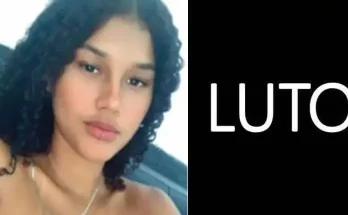P. DIDDY’S EX-ASSISTANT RECOUNTS KIDNAPPING, DEATH THREATS IN GRIPPING COURTROOM TESTIMONY
The air in the wood-paneled New York federal courtroom seemed electric with anticipation, even as the midday lull of a lunch break settled over the proceedings. Outside, sirens howled in the city’s labyrinth, but inside, it was the words spoken in the preceding hours—words heavy as thunderclouds—that remained thick in the room. This was the third week in United States vs. Sean “Diddy” Combs, an unfolding modern-day morality play starring one of music’s most powerful figures, and the testimony of Capricorn Clark, his former assistant, held the spotlight.
Clark’s name had already been whispered in connection to testimonies past—her shadow stretching from Kid Cudi’s recollections to the accounts of others who’d served time in Diddy’s rarefied, secretive inner circle. But today, she stepped from the margins onto the witness stand, calm but steely, determined, it appeared, not to withhold anything from the jury, however ugly or profane.

A Fateful Introduction
The story began in the hazy early aughts. Capricorn Clark, a rising figure with industry connections—and an acquaintance of Death Row’s infamous Suge Knight, through her best friend—first met Diddy around 2002. Two years later, she was swept into his orbit as his personal assistant, a role whose gloss faded quickly.
Clark’s first day, she recalled, had a cinematic quality: Diddy, security guard “Uncle Paulie,” and herself, in Central Park. But what promised to be a glamorous onboarding was, instead, a veiled warning. With icy calm, Diddy interrogated her about her ties to Knight, threatening her life should she be disloyal. “He said he’d kill me,” Clark recalled. The courtroom rustled as her memory hung in the stillness, the words protested by Diddy’s defense but lodged nonetheless in the listeners’ imagination.
Details of a Criminal World
The prosecution called upon Clark not just as an anecdote but as a linchpin—her testimony feeding the twin beasts of racketeering and forced labor so essential to the government’s sweeping case. She recounted introductions to Diddy’s formidable security team: friends of Biggie Smalls, brothers bonded by loyalty and fear. The weapons appeared on the periphery, silent shadows in the narrative, until finally Clark described seeing Diddy with a gun during what she alleges was her own kidnapping.
The 2011 Crisis: Kidnapping and Death Threats
By late 2011, Clark’s role had evolved—no longer a mere assistant, she was now Cassie’s creative director and manager. But proximity to Diddy meant proximity to danger.
December 2011. A love triangle brewed: Cassie and Kid Cudi, a potential powder keg. Clark, by now wary from years of experience, helped Cassie buy a “burner” phone, shielding their communications from Diddy’s all-seeing eye—a precaution born of terror; “I was afraid we’d all get killed,” Clark told the resistant court.
Late one night, a violent banging at Capricorn’s apartment door. Through the peephole: Diddy, enraged, pacing, his hand clasping cold steel. “Why didn’t you tell me who Scott is?” he demanded—Scott being the rapper Kid Cudi. Diddy ordered Clark to “get dressed”—they were, in her chilling recounting, “going to kill” Kid Cudi.
Forced into an Escalade, driven by one of Diddy’s security men, with Diddy’s gun now displayed on his lap, Clark was whisked up to the Hollywood Hills, to Kid Cudi’s home. There, as Diddy and his driver entered the house, she remained trapped in the car, frantically warning Cassie by phone.
Inside, Clark claims, Diddy confronted Cudi. A cat-and-mouse game followed, culminating in Cudi fleeing in his car and Diddy giving chase. The police, summoned by the commotion, arrived just in time to forestall something far worse. Later, Clark reported, Diddy instructed her to ensure that neither Kid Cudi nor Cassie tell the police who was truly behind the nocturnal terror.
A Life of Endless Work and Forced Secrecy
Clark’s testimony ranged beyond violence. She painted a portrait of a workplace where exhaustion was ritual, four hours of sleep a luxury, two hours the norm. Overwork led to medical problems; when she sought backpay for $80,000 of overtime, Diddy, she said, theatrically tore up the documentation rather than pay. Behind the glamour, she had become, like so many others, a machine for Diddy’s empire—booking hotel suites under aliases, cleaning up after late-night debaucheries, tending to “sticky” messes, hiding evidence, and observing, always, the unspoken rule: never question, never refuse.
Corroboration—and a Criminal Enterprise
Capricorn Clark’s testimony stitched together themes echoing through the trial: violence, control, forced silence, and a kingpin at the center. Her words bolstered those of Kid Cudi and Cassie, collectively painting Diddy not merely as a boss, but as a man orchestrating chaos, rage, and retribution with mob-boss precision.
As the court prepared to re-convene, Clark stepped down from the witness box, her voice echoing in the records and recollections of everyone present. The trial was far from over, but her story had become an indelible part of its fabric—a dispatch from the shadowy heart of celebrity, power, and alleged criminality.
.
.
.
Play video:


